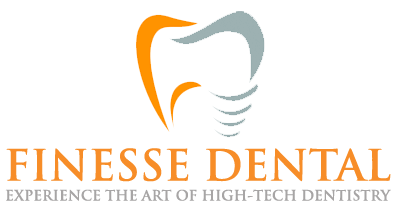What causes toothache?
Gums that are sensitive or infected
If you’re suffering from sensitive or infected gums, it can be a real nuisance. Bacteria and plaque buildup are the root cause of your redness and soreness, leading to painful infections that could result in receding gums as well as periodontal disease. To combat this issue effectively, it’s essential to maintain good oral hygiene habits like brushing twice daily and flossing at least once every day while replacing your toothbrush after three months have passed. Moreover, visiting your dentist regularly is essential to catching gum disease early. Left untreated, it can spread quickly and cause unnecessary pain or further damage in the long run, so taking proactive steps now will save you much trouble down the line.
Teeth that have developed an abscess and are infected
If you experience severe pain near your tooth, you may have an abscess. An abscessed tooth is a dangerous infection that occurs when bacteria become lodged in the deep crevices at the root of your tooth. Typically accompanied by swelling, inflammation and agony around the infected area, it’s important to detect an abscess early on for successful treatment; otherwise, more serious issues can arise. If you believe that you may have an abscessed tooth, act quickly and book an appointment with your dentist to determine the proper course of action. Delaying dental care could lead to dire consequences such as jawbone deterioration or even loss of teeth; however, antibiotics or root canal treatment can help rid the infection if caught in time. Don’t wait until it’s too late – seek professional advice now.
 Teeth that are chipped, cracked or broken
Teeth that are chipped, cracked or broken
Facing a cracked, fractured, or otherwise damaged tooth can be an uncomfortable and embarrassing experience. It is essential to act quickly if you are dealing with this issue, as delaying the appropriate care may harm your teeth even further. Consulting a dentist should be one of your first stops when attempting to repair these types of dental issues; they might provide fillings or other forms of minimally invasive restoration, which could help restore the health and appearance of your smile. Making an informed decision about your restorative treatment is critical because some may have long-term implications on the health of your teeth that require additional attention later. Yet, these treatments can reduce discomfort and help maintain a healthier smile for years to come.
Damaged fillings in the teeth
Neglecting damaged fillings is not only aesthetically displeasing but can also put your overall oral health at risk. If a filling has worn down or been exposed, bacteria and other microbes have easy access to the site of damage, leading to more serious dental issues like decay and even tooth loss if left untreated. Regular check-ups are key in catching these problems before they worsen – so you don’t end up with an unpleasant surprise! With prevention as well as early detection of weakened fillings, your smile won’t just look great – it will stay healthy too.
Grinding of teeth
Bruxism, otherwise known as teeth grinding, is a widespread phenomenon with numerous potential causes. Even when it occurs during sleep and might go unnoticed, regular grinding can generate tremendous issues for your dental health. Mouth guards are highly recommended to protect your smile from further damage and alleviate the pressure on other parts of your mouth. By providing a cushion against potential damage caused by bruxism, wearing a mouth guard can be a safeguard against tooth erosion and extensive dental wear and tear.
Severe trauma to the teeth or jaw, such as an accident or problems with TMJ
Trauma to the teeth, jaw or temporomandibular joint (TMJ) can be quite worrying and painful. The toll a traumatic event has on an individual’s physical and emotional well-being is huge. If you or someone close to you are dealing with any kind of trauma related to the mouth or jaw region, medical attention must be sought immediately, as serious health risks may accompany such a situation. Whether your injury is recent or from long ago, seeking attention from a dentist or doctor will guarantee you receive an accurate diagnosis and treatment plan so that you can quickly begin the road to recovery.
Wisdom teeth coming in
Reaching the late teen and early adult years is an important dental milestone for many, as it often signals the eruption of wisdom teeth. On average, one can expect to have four wisdom teeth come in, although this number may vary from person to person. With their emergence comes a series of potential discomforts that include but are not limited to sharp pain, soreness in gums or jawbone area, headaches and dental issues such as tooth crowding or infections due to retained food particles near the affected eruption site. Should discomfort arise with your own set of wisdom teeth, then be sure to look into what treatment options you can avail, ranging from immediate extraction all the way up to fixing existing problems before removal. Dental experts can evaluate if you need to alter your dental health plan.
Tooth decay
Tooth decay, or dental caries, is a form of destruction that occurs to your enamel when acids and bacteria converge. This will create cavities in the tooth, which become larger if left untreated, leading to increased sensitivity or pain when exposed to cold/heat temperatures. Food particles becoming trapped between teeth and along gum lines can also cause extreme discomfort. If left untreated, this painful condition can lead to devastating consequences, such as an abscessed tooth requiring extraction. Establishing a daily oral health care routine is critical to avoiding unnecessary pain down the road. Properly caring for your teeth can help manage tooth decay and prevent it from becoming an issue in the future.
When does a toothache become an emergency?
- A sharp, aching ache that gradually intensifies in severity.
- Severe pain that intensifies when chewing or biting down.
- Increased sensitivity to extreme temperatures, both hot and cold.
- Tenderness and inflammation around the afflicted tooth are common symptoms.
- The gums are tender and inflamed, exhibiting a distinct redness.
- Persistent halitosis or an unpleasant taste in your mouth
How may your dentist treat tooth pain?
Fluoride
Cavities are a result of acid buildup in the mouth that erodes teeth, leaving them with painful holes. If caught early enough, cavities can be treated by cleaning and using fluoride treatments to rebuild enamel – making the tooth more resistant to decay. Fluoride works wonders at reversing damage from cavity-causing acids and prevents further infection under the gums.
Dental filling
When a cavity has already developed in the decaying tooth, dentists employ dental drills to remove the affected area and apply dental fillings to repair the tooth. To speed up the hardening of these fillings, they often use blue wavelength light. After that’s completed, they file and polish the healthy-looking tooth for an optimal bite alignment. Dental filling treatments are quite normal. Although some patients experience short-term sensitivity after their visit, it dissipates within days.
Root canal therapy
When a tooth nerve infection is present, the most effective means of treatment is through a root canal. During this process, any infected pulp inside your tooth must be taken out, and the tooth itself cleaned properly so that it can heal effectively before being filled. This procedure not only prevents further discomfort but also stops bacterial growth in its tracks by sealing off the cavity which the pulp was removed from. Even though teeth lack the ability to feel hot or cold temperatures after this procedure, they are still able to function as normal since other components within them remain intact.
Tooth extraction
Tooth extraction is a practical solution in case of severe infections and overcrowding, especially for impacted teeth that necessitate surgery. To begin the procedure, an anesthetic will be applied to numb the area around the tooth before its removal. Using forceps, your dentist then gently rocks the tooth back and forth until it becomes dislodged from its socket in the jawbone.
Home remedies for toothache

- Give your mouth a refreshing cleanse with warm, salty water.
- For severe pain, rely on nonsteroidal anti-inflammatory drugs such as Ibuprofen or Acetaminophen for quick and powerful relief.
- To ease your discomfort, try applying an over-the-counter pain reliever like benzocaine to the affected area.
- Make it a point to floss daily so that you can remove food particles trapped between your teeth, preventing any discomfort and pain.
- To reduce pain, avoid biting down on the tooth that is causing discomfort.
Find swift relief for your toothache and guarantee the long-term well-being of your oral health with Finesse Dental’s friendly dentist. With early detection of any potential issues, you can be sure to avoid further damage or discomfort. Don’t delay; book an appointment or call us now on (02) 8806 0790.
References
Toothache Home Remedies
https://www.webmd.com/oral-health/home-remedies-toothache
Toothache
https://my.clevelandclinic.org/health/diseases/10957-toothache
Toothache: First aid
https://www.mayoclinic.org/first-aid/first-aid-toothache/basics/art-20056628


 Teeth that are chipped, cracked or broken
Teeth that are chipped, cracked or broken